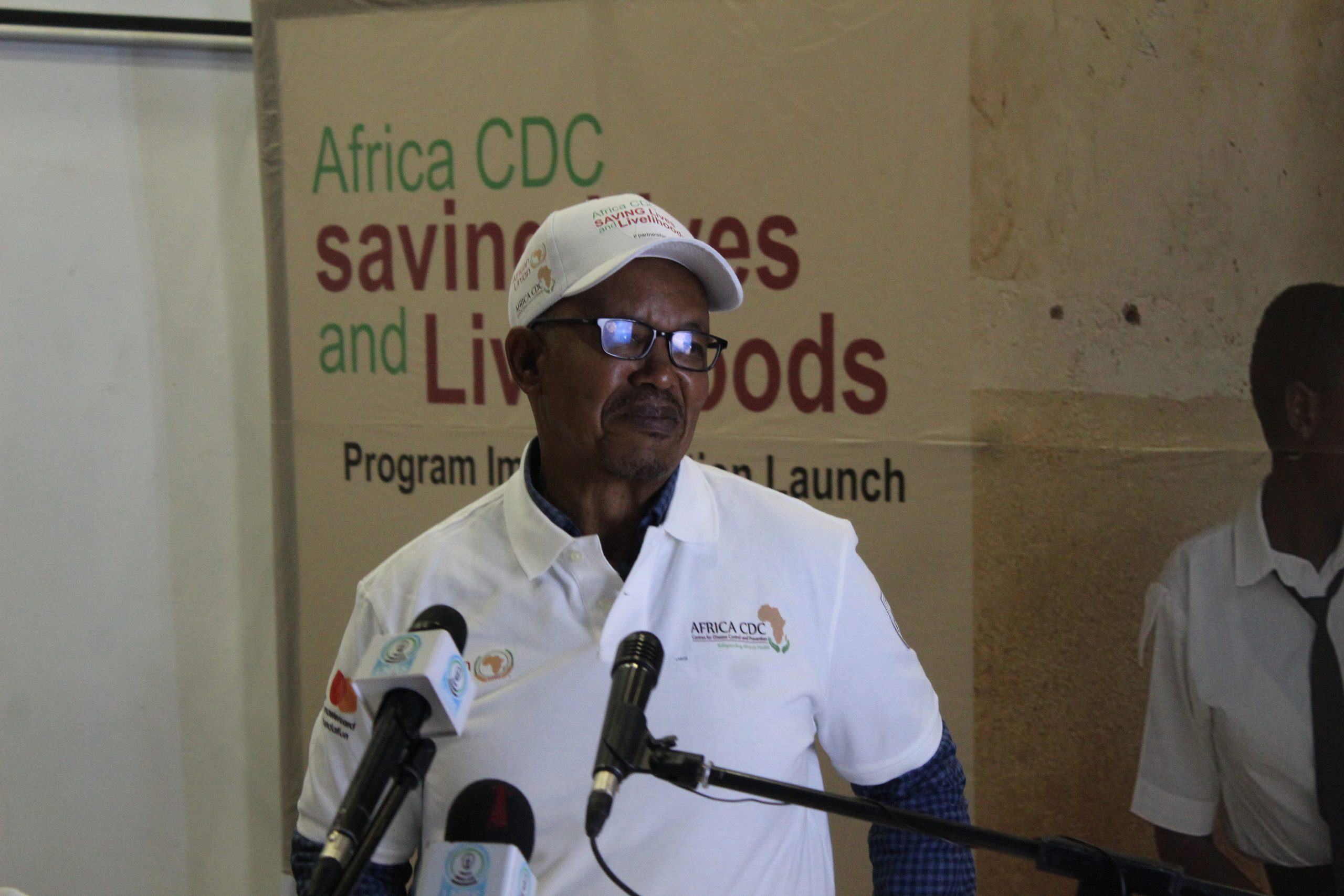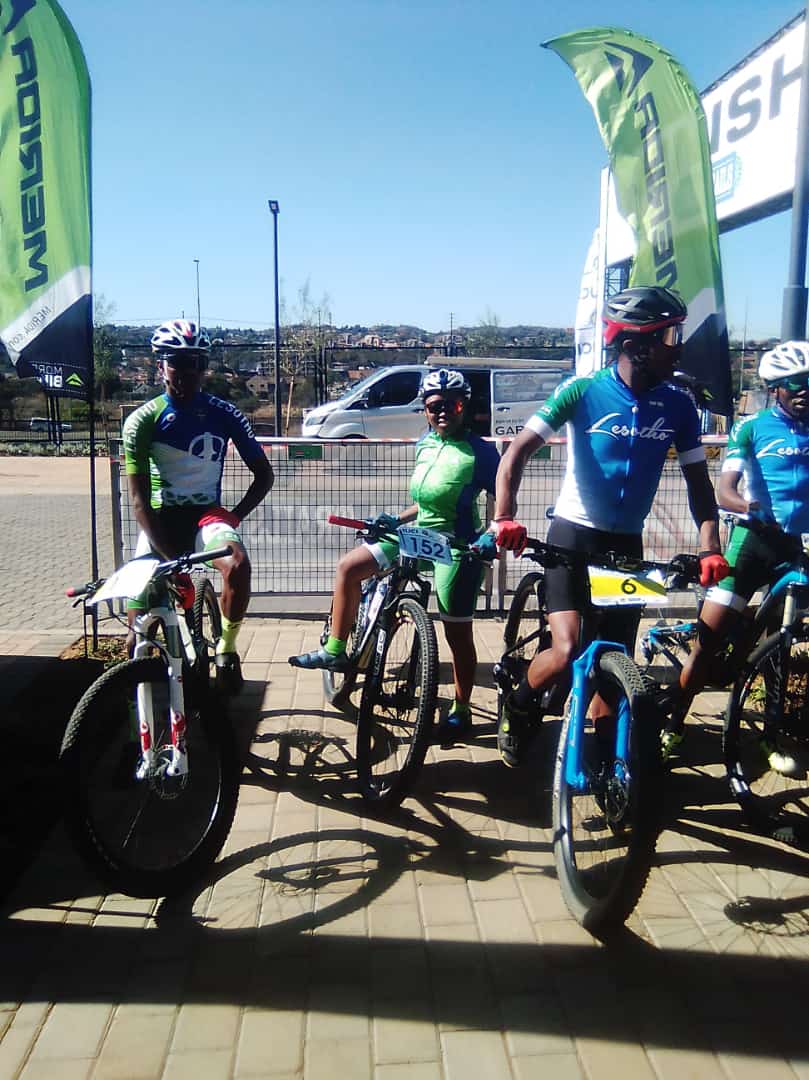…As the country records over 300 cases a week
…The govt launches vaccination acceleration program
Staff Reporter
Lesotho has reportedly been recording high cases of COVID-19 in the last month of July, with the last week of July sitting between 350 and 500, Newsday has learned.
A source from within the WHO revealed to this publication that the scourge of the virus was recurring yet the government remains hush about it.
Since the government through its spokesperson, Communications and Sciene and Technology Minister TÅ¡oinyane Rapapa declared COVID-19 not a pandemic mid this year, life has gotten back to normal, however, the source reveals that the WHO and all stakeholders including the government have been in “countless meetings discussing the threat of a recurring pandemic.â€
“The government is reluctant to telling Basotho that COVID-19 has not ended, if anything, we have been receiving reports of increasing cases with the last week of July, the cases stood at 350, meaning the daily reports released are incorrect,†the source said.
When contacted to verify the WHO’s ‘frustration’, Dr Rechard Banda told this paper that he would only be able to respond to its questions during the weeked, however confirmed to have seen the request to respond.
Health Ministry Public Relations Officer (PRO), ‘Mateboho Mosebekoa, when asked if indeed Lesotho is facing another COVID-19 scare declined confirming saying the numbers she is privy to are those released by the ministry on a daily basis.
“I only provide the media with daily updates which mostly show that at least every day 1, 2 or up to 6 cases are recorded daily,†she said.
She said according to the daily reports, COVID-19 seems to be stable and under control.
Despite Mosebekoa declaring the pandemic to being under control, the ministry on Wednesday this week launched the Saving Lives and Livelihoods Implementation, an ambitious program to drive thousands more Covid-19 vaccinations in the country.
The Africa CDC and the Ministry of Health through the initiative aims to assist the country reach 70% of the population eligible for Covid-19 in the country.
Lesotho had initially announced its plan to vaccinate at least 1.6 million of the population, which makes up 70 percent, but has only managed to vaccinate 40 percent of the population.
The program is supported by the Africa Centres for Disease Control and Prevention (Africa CDC), World Health Organisation (WHO) and Botswana Red Cross Society.
It is also supported by Amref Health Africa, formerly the African Medical and Research Foundation (AMREF).
The initiative targets to reach 70 percent of the Lesotho population eligible for COVID-19 by focusing on rural and other under-vaccinated communities to bring the pandemic under control.
Speaking at the launch, Health Minister, Semano Sekatle, said the COVID-19 pandemic had demonstrated the importance of collaborations.
“It has also demonstrated the strategic importance of our institutions in Africa, particularly the Africa CDC,†Sekatle said.
He indicated that the Africa CDC had been supporting Lesotho since the beginning of the pandemic.
“It (Africa CDC) was with us when the availability and access to Covid-19 vaccines were a big problem, when the accuracy of vaccination records was questioned and when the vaccines were questioned. It is still here when the process of vaccination seems to be stagnating,†the minister said.
According to Dr Lul Riek, Southern Africa Regional Coordinator at the Africa CDC, the initiative is part of a US$1.5billion (M24.3 billion) partnership between Africa CDC and Mastercard Foundation.
The partnership has four key objectives: to purchase COVID-19 vaccines for at least 65 million people, drive millions more vaccinations by enabling the delivery and administration of vaccines, lay the groundwork for vaccine manufacturing by focusing on human capital development and strengthen the capacity of Africa CDC.
“The Saving Lives and Livelihoods will include a strong focus on Risk Communication and Community Engagement (RCCE) to enable the Kingdom of Lesotho citizens, particularly young people, and rural populations, to understand the safety and benefits of vaccination,†Dr Riek said.
WHO country representative, Dr Rechard Banda, when speaking during the launch emphasised that the COVID-19 pandemic is still an ongoing pandemic.
“The country has made strides with vaccination coverage of 44.6 percentage. On the flip side, hundreds of thousands of people including some high-risk groups people remain unvaccinated which means they are more vulnerable to future waves of the virus,†Banda said.
He stressed that until high levels of vaccination were reached, suppressing transmission of the virus remained essential.
“It is a great milestone to launch the project implementation in Lesotho. This marks the beginning of the 12 months of implementing RCCE activities in Lesotho, Kutloano Mukokomani, Secretary General of the Botswana Red Cross said.
Mukokomani added: “The Lesotho Red Cross Society as the implementing partner for the Botswana Red Cross will execute the RCCE pillar activities as stipulated in the micro plan. This RCCE pillar aims to reach more than 200,000 people with messages and information that will assist in increasing the vaccine uptake.â€
In the simplest terms, risk communication and community engagement means involving communities to make outbreak communication as effective as possible.
RCCE uses social science methods, two-way communication, rumour control, and participatory engagement to support communities in mitigating outbreaks and reducing their impact.
WHO recognises RCCE as a key response pillar for public health emergencies.
Mukokomani on Wednesday said that the implementation of RCCE activities in Lesotho will also include training and skills development programs, development of targeted risk communication and preventative materials, facilitating RCCE through social media and establishing feedback collective systems.
Amref Health Africa is the largest Africa-based International Non-Governmental Organisation (INGO) and is headquartered in Kenya.
With a focus on increasing sustainable health access, Amref runs programmes in over 35 countries in Africa, with lessons learnt from over 60 years of engagement with governments, communities, and partners.
The organisation’s representative, Boniface Hlabano, said the saving lives and livelihoods program aimed to support at least 335 outreaches in the needy communities which will be executed through the 67 health facilities.
Hlabano said the health facilities will be strategically chosen from four districts.
“There are 135 schools that are also earmarked to be visited by the outreach teams,†he said.
Summary
- Since the government through its spokesperson, Communications and Sciene and Technology Minister Tšoinyane Rapapa declared COVID-19 not a pandemic mid this year, life has gotten back to normal, however, the source reveals that the WHO and all stakeholders including the government have been in “countless meetings discussing the threat of a recurring pandemic.
- “The government is reluctant to telling Basotho that COVID-19 has not ended, if anything, we have been receiving reports of increasing cases with the last week of July, the cases stood at 350, meaning the daily reports released are incorrect,†the source said.
- The Africa CDC and the Ministry of Health through the initiative aims to assist the country reach 70% of the population eligible for Covid-19 in the country.

Your Trusted Source for News and Insights in Lesotho!
At Newsday Media, we are passionate about delivering accurate, timely, and engaging news and multimedia content to our diverse audience. Founded with the vision of revolutionizing the media landscape in Lesotho, we have grown into a leading hybrid media company that blends traditional journalism with innovative digital platforms.







